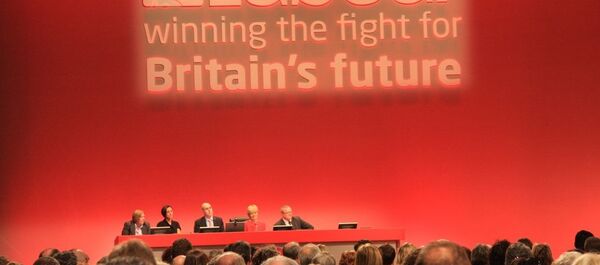Blair's caustic remarks — made in an article for the Spectator magazine — go to the heart of the current divisions within Labour. Blair was the leader who marched his party from the political left towards the center ground and won three consecutive general elections and who — controversially — went to war against Saddam Hussein in Iraq.
“We have to find a new foreign policy synthesis that learns all the lessons from 9/11 to today.” Tony Blair at @CFR_org
— Tony Blair Office (@tonyblairoffice) December 4, 2015
Corbyn, on the other hand, ran his leadership campaign on a socialist ticket — lurching his party back from the center ground to the left — and is hugely anti-war, which caused a substantial rift in his party in the recent vote on whether to launch airstrikes over Syria.
British service men and women will now be in harm’s way and the loss of innocent lives is sadly almost inevitable pic.twitter.com/z338VAmIai
— Jeremy Corbyn MP (@jeremycorbyn) December 2, 2015
Blair's election in 1997 ended 18 years of Conservative government under Margaret Thatcher and John Major. He won on a pro-business ticket that included making the Bank of England independent and establishing a light-touch financial regulator, the Financial Services Authority (FSA).
His critics within the Labour Party, however, felt he had turned his back on socialism and had reinvented the party as a middle class center-left organization that did not have the working man at its heart. Blair disagrees, saying: "Many — especially in today's Labour Party — felt we lost our way in Government. I feel we found it."
"Significant elements of the party [during Labour's time in power] saw the process of governing with all its compromises, pragmatism and embrace of changing times as implicit betrayal of our principles," Blair admitted.
Deep Divisions
Corbyn — who voted against war with Iraq, defying Blair — says his leadership campaign re-embraced the socialist principles of his party, giving a rise in membership as proof of his left wing agenda.
"All wings of the Labour Party which support the notion of the Labour Party as a party aspiring to govern, rather than as a fringe protest movement, agree on the tragedy of the Labour Party's current position," Blair wrote.
They do not share many of his views on the economy, nuclear deterrent or defense, which includes withdrawal from NATO.
The intervention of Blair, will further cause tensions within the Labour party, with most of his lawmakers in Westminster agreeing with him, while many grass roots socialists in the wider party disagree.



